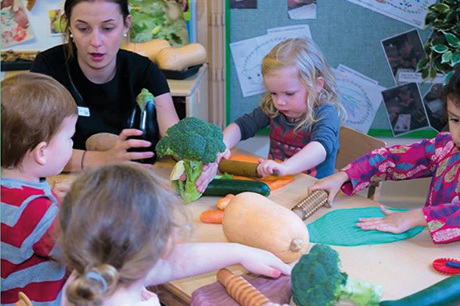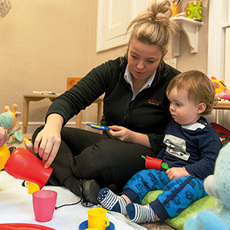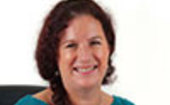
Download the PDF of this article
There is a new kid on the block – or rather, a whole generation of them. Generation Z, born between the mid-90s and the early 2000s, are either young adults or reaching adulthood. They are the first generation not to remember 9/11; they lived through the 2008 global financial crash; and, crucially, they have never known a world without technology.
As a result, says Poppy and Jack’s owner Sarah Bellamy, ‘Generation Z has a whole new outlook.’ She has recently given staff a presentation on Generation Z because ‘it’s something we have to shape our businesses to address’.
She adds, ‘Once you’ve seen David Beckham with his shirt off asking for likes on Instagram, the old hierarchies don’t make sense any more.
‘There is a fundamental cultural change happening, and it is all about how we adapt and make the most of it.’
So what are the characteristics that are having so much impact? According to intergenerational speaker and author Henry Rose Lee, ‘Even the youngest Millennials didn’t get phones until they were about ten, but Generation Z has grown up with them. This makes them very adaptable and happy with new systems. Often, they actively expect innovation and novelty at work.’

Poppy & Jacks is encouraging staff to contribute ideas
In response to this, Poppy and Jack’s has started to provide more on-the-job training rather than external courses.
‘Generation Z doesn’t need a manager to teach pedagogy when they can just Google it,’ says Ms Bellamy, adding that openness to innovation can give the younger generation the edge.
‘They are motivated to try new things and aren’t afraid of failure. Where other generations want to make something really good before they do it, Generation Z-ers are used to posting hundreds of things online and editing later. Other generations work longer hours, but Generation Z works efficiently.’
Other approaches include Childbase Partnership updating its online training platform to include game design elements in order to appeal to Generation Z students, who can access the bitesize modules on their phones.
MENTAL HEALTH
Much has been said about the links between overuse of technology and stress, and the corresponding impact on this generation. A study in the American Psychological Association’s annual Stress in America said Generation Z had the worst mental health of any generation previously included in the report.
Universities UK recently reported a fivefold increase in the number of students disclosing mental health conditions since 2007, while other studies have indicated an increase in loneliness among this age group.
However, the BMJ reports that the causes of these increases seem to be uncertain.
Although the number of children seeking help from Child and Adolescent Mental Health Services (CAMHS) in England has more than doubled in the past two years, Ms Lee says some of this may be down to the fact that ‘Generation Z is more aware of the things that are scary about the world’.
Chief executive of Kids Planet, Clare Roberts, says ‘sharing problems is what has increased. People talk to their bosses about things they maybe wouldn’t have before, and we as managers are far more involved in employees’ personal lives.’
Kids Planet had already invested in a mental well-being programme for children, but has recently extended the offer to staff as well.
Ms Roberts adds that some nursery parents are themselves members of Generation Z, and they see managers as a source of support.
She says, ‘We need to be able to signpost people to someone who has the expertise to help; whether with home life, mental health, domestic violence or financial planning. The number of relevant professionals is growing and we are learning to work with them so we are not held accountable for giving wrong advice.’
Ms Roberts explains that the changing needs of the younger generation have led to a widening of the role of manager to ‘a friend or counsellor; you wear lots of different hats’.
Ms Bellamy agrees. ‘Being a manager is becoming more about well-being, nurture and development. It is less about managing and more about leading.’
Indeed, Forbes polls have suggested that Generation Z rates positive relationships and one-on-one engagement with leaders as top priorities at work.
This is also a generation which is keen to be heard. An estimated 58 per cent of 18- to 24-year-olds voted in the 2015 general election, up from 38 per cent of the same age group in 2005.
Ms Bellamy adds, ‘On social media, you can “like” something or unfollow it. Generation Z is so used to feedback, there is almost no filter on when they need it, or how they deliver it. They are used to being open and honest. Historically, a manager would have assumed a level of respect based on their [status] and knowledge, but these barriers are dissolving.’
After hearing feedback from younger staff members that superiors ‘don’t understand what it’s like to do our job’, Poppy and Jack’s had area managers cover roles on staff days off. It also offers a ‘monthly makeover’ for a nursery room based on the design receiving the most ‘likes’ on its staff Facebook page.
‘We encourage staff to contribute,’ Ms Bellamy explains. ‘This flattens the structure; they can come to us with ideas and influence their own work. A direct line of communication is very important.’
 Sarah Mackenzie, partnership quality and training director at Childbase Partnership, where Generation Z makes up 31 per cent of the workforce, adds, ‘Generation Z comes to the workplace with the expectation that each job is a stepping stone, and is therefore more focused on training opportunities, career development and financial rewards and benefits than previous generations.’
Sarah Mackenzie, partnership quality and training director at Childbase Partnership, where Generation Z makes up 31 per cent of the workforce, adds, ‘Generation Z comes to the workplace with the expectation that each job is a stepping stone, and is therefore more focused on training opportunities, career development and financial rewards and benefits than previous generations.’
With staff retention continuing to challenge the sector, Childbase provides Smarter Smarties – cash rewards for going ‘above and beyond’ at work, and has recently rebranded its annual Family Fun Day Out as Colleague and Family Fun Day, allowing younger employees, less likely to have children, to invite a friend instead.
The group also offers visits to early years centres abroad to appeal to what it calls the ‘experience-seeking’ members of its workforce.
However, Poppy and Jack’s Ms Bellamy warns that young staff will still find it easier to jump ship.
‘Generation Z is able to see other opportunities and isn’t scared to give them a go,’ she says. ‘Ten or 15 years ago you wouldn’t necessarily know about childcare jobs on cruise ships or around the world; now they’re advertised on Facebook feeds. There’s a lot more visibility.’
WHO ARE GENERATION Z?
The naming of generations has become commonplace since the post-war ‘baby boomers’, with Generation X, Millennials (or Generation Y) and now Generation Z following suit. The newest kid on the block in the workplace, Generation Z is generally accepted to include anyone born after 1995 and is set to constitute one-fifth of the workforce by 2021.
According to Ipsos Mori, which produced a 2018 report on young people, there have been big decreases in smoking, drinking, some drug taking and crime.
Bobby Duffy, report author, said, ‘They face some really tough conditions, particularly in Western countries like Britain – a tough economy, rapidly changing labour market, all-encompassing technology that brings new threats as well as opportunities, polarised politics and long-term trends like increasing obesity.
‘But so many positive aspects shine through from our study – their interest in social action and ethical consumption, their trust in others, their dropping of some past bad habits, their openness to difference on sexuality, gender and immigration.’
Speaker and author Ms Lee says those in Generation Z are ‘Millennials on steroids’. They share many of the same attributes as their generational predecessors, but often more extreme.
She says, ‘Unlike most previous generations, Millennials were not richer than their parents, and Generation Z is even poorer. They have grown up with uncertain political and financial backgrounds, don’t know when they will retire and there’s no Government money to support them.
‘They are aspirational; they want to do it themselves. They haven’t got much, but want to feel they’re in control of their own destiny.’
Case study
 Cheryl Hadland, founder of Tops Day Nurseries
Cheryl Hadland, founder of Tops Day Nurseries
My daughter Jen is Generation Z, and I think fairly typical. Watching her work is head-spinning; she will have the TV, YouTube, laptop and music on all at the same time, and she’ll be reading and jumping between them, communicating with friends and still getting her work done, it’s extraordinary.
She’s very digital, but not particularly persistent. If she doesn’t like doing something, she’ll stop and move on. So she’s not a nursery practitioner any more. After achieving her Level 3 she went travelling, learned yoga, and now runs her own yoga studio. She’s highly independent, and very sociable. It’s all about who she wants to work with. She’s into charity shops, not brands, quite ‘zen’, and aware of the environment.
We need to take these things into account at work. It certainly contributes to staff turnover, and we could probably do more in the line of yoga, meditation and mindfulness to support young people enjoying their work.
 Jenny Hadland, 23
Jenny Hadland, 23
There can be unfair stereotypes that my generation is wasteful or unappreciative, but I’ve also heard older generations are impressed by how we use technology and how forward-thinking we are.
When I worked in a nursery I loved active bits like Forest School. I was very keen to get children out climbing trees, getting dirty, touching bugs and learning their limits the natural way. I know a lot of people my age share this view.
I left childcare to travel round South East Asia and Australia. I found after such a profound experience I didn’t want to go back to exactly where I was when I left. I fancied a change and wanted to experience different professions.
By the time my mother was my age she was married with two kids and working on her business. We’ve both started businesses, but I got a lot of travelling and young life before I settled down. Most of my friends are in similar boats to me.









